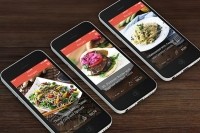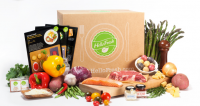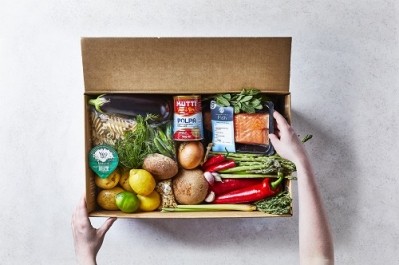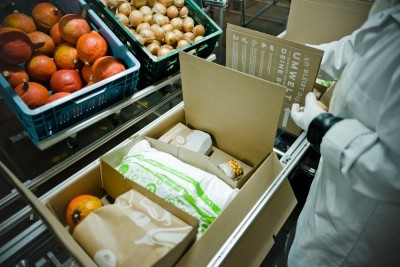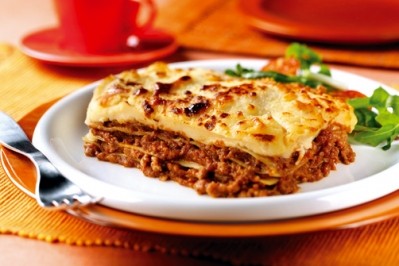Has the meal kit craze arrived in Europe?
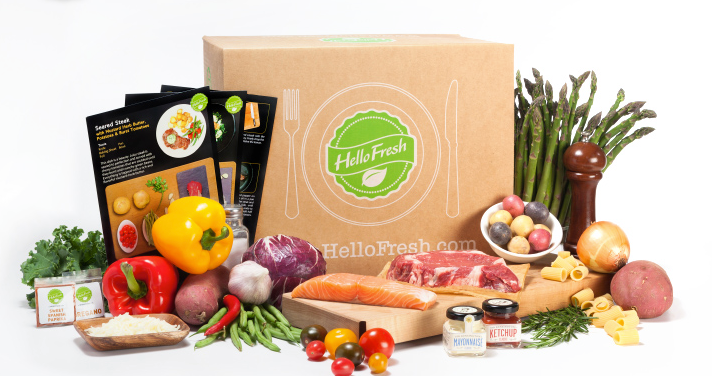
“Meal kits – as a 'half-way-house' option - provide a good means to tap into the scratch cooking trend for prepared meals manufacturers. Products that provide guidance in the cooking process should also appeal to less confident cooks [and] meal and spice kits are ideally placed to function as a learning tool to help home cooks build confidence," according to a recent report by market research company Mintel.
In the US sales of meal kits delivered to consumers' doors surged to more than $1 billion (€0.9 bn) last year, according to food research and consultancy firm Technomic.
Start-up central
However, the trend is not limited to the UK. Mintel data reveals that 72% of Italian, 67% of Spanish, 65% of Polish, 64% of German and 57% of French consumers have eaten chilled meal kits.
In Germany – Europe’s third biggest market for prepared meals – meal kit innovation has been dynamic, it says. Nearly two thirds (64%) of consumers use chilled meal kits while almost half (48%) use shelf-stable meal kits.
Home delivered meal kits are also increasing in popularity. In 2014, Retail Intelligence Lab pointed to Marley Spoon, Hello Fresh, and KptnCook as examples of companies that were beginning to tap into the trend for healthy eating and home cooking kits in Europe.
Berlin-based Hello Fresh offers a subscription service allowing consumers to choose a weekly meal plan while Marley Spoon, which operates in the UK, Germany, Belgium and the Netherlands, allows consumers to pick their favourite recipe – meat, fish and vegetarian dishes are all on offer – and then delivers the ingredients.
Meanwhile KptnCook, a start-up also founded in Berlin in 2014, offers a free downloadable app which gives users a recipe and then provides all the information on where to buy the ingredients, with a focus on local produce.
Room for innovation
“Meal kit innovation reflects current food trends, aligning with the movement toward convenience, customisation and more ethnic cuisines. In fact, some new ethnic launches contain all ‘exotic’ ingredients which might otherwise be difficult to purchase locally. New opportunities for growth in Germany will come from a rising interest for customised food,” says the Mintel report.
Some companies are already doing this with tailored or themed recipe kits: Mindful Chef delivers paleo boxes to certain parts of the UK while The Spicery offers ethnic variations from Korean to Cajun cuisine.
Meal kits can also vary in the levels of ‘deconstruction’ they offer consumers, appealing to different levels of culinary ambition and experience.
Firing up the cooking skills
So what’s fuelling the rise in scratch – or partly from scratch – cooking?
In the UK Mintel attributes it partly to the rise in high-profile celebrity chefs, from Heston Blumenthal to Jamie Oliver, that have “fired up” young Brits and given them a taste for experimenting in the kitchen.
But although three in five (60%) of 16 to 34 year-olds say they enjoy trying out new cooking trends and ingredients, many feel they simply don’t master the basic cooking skills required while over one third (34%) of young people say they find it hard to get the seasoning right.
For young British consumers, the main reason cited is because it’s fun – 50% say they do so because they enjoy it, but this is closely followed by 49% who say it allows them to control what goes into their food and 47% for whom it’s a way to save money.
The enjoyment factor is something meal kit manufacturers could tap into.
Anita Winther, food and drink analyst at Mintel says: “The majority of Brits find pleasure in cooking. Focusing marketing messages on the enjoyment found in cooking should provide ingredient and meal component brands with a means to tap into this emotional aspect of cooking.
